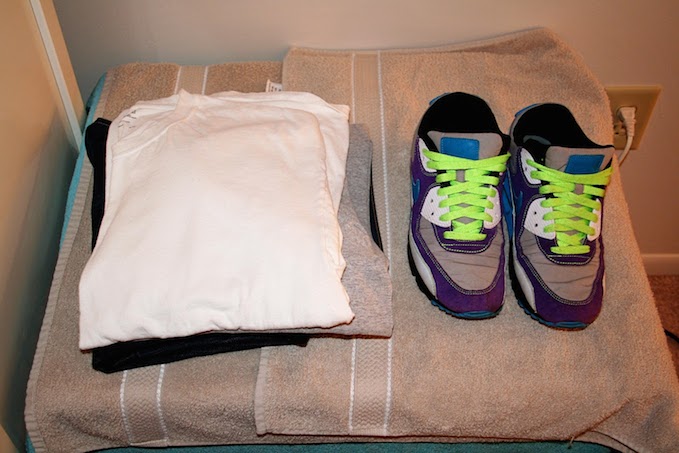7 Strategies To Help You Wake Up Early For The Gym

I am not a morning person by nature.
In fact, if left to my own devices, I would gladly go to sleep every night at 3am, and wake up at around 11…
It’s just how I like to roll.
Unfortunately, the rest of society generally doesn’t function on that rhythm – forcing many of us to wake up early each day, for one reason or another.
Obviously getting up for work is the biggest constraint here, and many people dread what the jarring sound of their alarms signal on a daily basis.
However, for many of us, if we want to get in a good workout, we have no choice but to do it in the morning before work.
This, of course, presents a challenge. You have to get up even earlier than you might if you were going to work.
And in the haze of that post-alarm fog, it is extremely easy to justify why bed is a better alternative than going to the gym.
I mean, bed is warm, cozy, and restful. The gym is none of those things!
But that doesn’t mean that you should hit the snooze button and throw in the towel!
If the morning is the best time for you to work out, given your particular schedule, then this article will help make it a reality.
Are you one of those people that eagerly bounces up, bright-eyed and bushy-tailed, when the alarm goes off?
Congratulations. You’re an early bird. This article is not meant for you.
But if you’re naturally a night owl that really wants to wake up early for the gym, then read on and learn how to make it easier.
1) Get everything ready the night before.
The more you prepare for the morning ahead, the more likely it’ll happen as you planned.
So before you go to bed, get everything ready for the morning in advance.
This means getting out your gym shoes, making sure your gym bag is packed and ready (if you have one) – and anything else that you’ll need to do between waking up and working out.
Why do I recommend doing this?
2 reasons actually. For one, it will save you time in the morning, allowing you to set your alarm clock for slightly later than if you hadn’t prepared.
The second reason is psychological: when the alarm goes off, there will be less friction between you and your goal (getting up and going to the gym), making you less likely to skip your workout.
2) Don’t plan for the snooze button.
While this may be a matter of personal preference, I really don’t like the snooze button.
I understand why it was created – to provide an all-too-easy option of getting another 10 minutes of unsatisfying sleep, but I don’t think it actually makes getting up any easier for most people.
So, my advice is that you should never plan on using your snooze button as part of your morning routine.
This means that if you need to wake up at 6, don’t have your first alarm set for 5:30, and then plan on hitting the snooze button 3 times until 6.
And while there is nothing wrong with this approach in theory, from my experience it makes it much less likely that you’ll get up as planned.
Instead, here is what is more likely to happen:
You’ll be woken up by the alarm at 5:30, know that you technically have another 30 minutes to sleep, feel that you are tired and that 30 minutes isn’t nearly enough time, rationalize that you don’t need to work out today, reset the alarm time accordingly, and go back to sleep.
Does that sound like something you’d do? If so, start setting your alarm clock to when you really need to wake up, giving yourself more solid, uninterrupted sleep, and break the snoozing cycle.
3) Use an alarm that provokes the least amount of resistance.
There is no universal ‘best’ type of alarm sound to wake up to.
Some people like to wake up to music.
Other people find that their favorite radio station works better for them.
And others still find that nature sounds (birds chirping, waves crashing) lull them back into reality most effectively.
And yes, there are even people who actually prefer the default, jarring evacuate-the-building-now-there-is-an-emergency alarm sound.
So which one is the right one for you?
I have no idea, since I’m not you – but I would strongly recommend experimenting with different options, so that you can figure out which one makes waking up early the easiest.
4) Try waking up naturally (to artificial light).
Do you find that it is that much harder to get up when it’s dark outside?
I feel your pain. Getting up when it is dark sucks…
Unfortunately, depending on the time of year (and where you live), sometimes it may be dark out when you need to get up for the gym.
But did you know that you don’t have to wake up to darkness ever again?
Yes, one of the marvels of modern technology is the wake up light alarm clock.
These nifty gadgets will gradually increase the amount of light in your room, starting at a specified time before you need to wake up.
The goal is to have the light wake you up naturally, so that the transition out of your slumber doesn’t seem so stark.
I would definitely recommend checking out the Philips Wake Up Light, which you can pick up from Amazon for $75.
At the time of writing, this thing has 1387 reviews on Amazon, with an average rating of 4.5 stars out of 5.
If you read some of the reviews, you’ll see countless self-proclaimed night owls claiming that this device finally made mornings tolerable for them.
Sounds pretty promising, right?
5) Get to bed early enough.
Routinely getting to bed late, and still somehow expecting that you’ll wake up early for the gym, is a losing strategy.
You simply won’t get enough sleep, which means that your workouts will inevitably suffer.
It also makes it far easier to write off waking up for the gym before you even go to sleep!
By this I mean basically saying to yourself, as you’re getting ready for bed at 1am:
“If I have to wake up at 6 for the gym, I’m only going to be getting 5 hours of sleep. And that is if I fall asleep right away. No way – I need my sleep, no gym tomorrow.”
The fix for this is thankfully pretty easy: force yourself to go to bed earlier each night until it becomes a habit!
Yes, at first it might feel a bit strange – even uncomfortable – if you’ve been a life-long night owl, but once it becomes a habit it will help take some of the friction out of your early mornings. I promise.
6) Use the power of visualization.
I am a big believer in this, and find that it can completely change how you perceive certain things…
Basically, you need to create a strong mental framework for how an ‘ideal’ morning would go for you.
Feeling rested when your alarm goes off, having an enjoyable breakfast, a shower, and then walking/driving to the gym while enjoying the peace of the early morning.
And, of course, having a great workout when you get there!
So, create mental images of how you would like your mornings to go, and play them through your mind a couple times a day.
Trust me, over time this will translate into easier mornings if you get into the habit of mentally framing them properly.
7) Have a workout routine that you enjoy.
If you don’t enjoy your workouts, you are never going to want to wake up to do them.
And none of the other strategies that I went over will be able to overcome this in the long-run.
If you just aren’t a runner, and try to force yourself to go running each morning, you will dread the alarm clock each and every day.
So, it is very important to have a workout routine that you actually like doing.
This will mean fewer workouts skipped, happier mornings, and ultimately a better mental outlook each day.
Would you like some guidance with all of this?
Then I’d suggest taking a look at our online personal training services.
If you decide to become a member, we’ll do our best to design a workout routine that you actually look forward to each morning.
